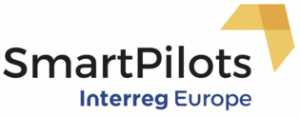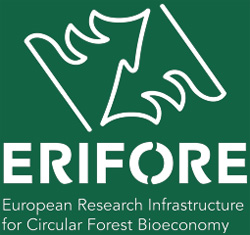BIOECONOMY FACTSHEET UK
This factsheet gives an overview of the UK bioeconomy innovation technology system. It includes the key government interventions, research initiatives, networks and finance instruments, in the UK.
This factsheet gives an overview of the UK bioeconomy innovation technology system. It includes the key government interventions, research initiatives, networks and finance instruments, in the UK.
The Open-Bio project aims at increasing the uptake speed of standards, certification systems, labels and data sheets for bio-based products. Public acceptance of bio-based products is increased through ensuring, verifying and visualizing the sustainable sourcing of raw materials, the effective bio-content, the end-of-life options and clear indication of their (comparative) functionality in relation to the regular products. These positive effects will indirectly result in faster growth of the bio-based product industry and increased share of bio-based in the total use of final (consumer) products and intermediates. The Open-bio project promotes these positive effects by facilitating the development and optimization of standards, (ecological) labels and product information databases.
This Seventh Framework Programme project commenced in November 2013. It is partially a follow-up on a pending pre-normative project (KBBPPS), which had initiated the development of standardised methods to test bio-based products for various properties. The current project took these proposed standards forward and elaborated a number of new ones, considering aspects as diverse as the determination of the total bio-based content of a product, its likely biodegradation in sea water, its compostability and the extent to which it can be recycled. Standardised methods help manufacturers to substantiate their claims about the biobased content and related properties of their products. Several of those proposed by the two successive projects have been submitted to the European Committee for Standardization
(CEN) and the International Standardization Organisation (ISO). Four have been adopted, and several more are being finalised in cooperation with these bodies.
In addition to that, it is important that all properties and applications are clearly communicated to the users of bio-based products. Open-Bio has established guidelines for ecological labelling of and for the product information supplied together with bio-based products. A socio-economical investigation towards bio-based products acceptance in six EU Member States complements the work. In the end, the result is intended to lead to standards and policy rules at European level.
SUPERBIO focuses on the biobased economy. This emerging economy relies on the use of biomass (e.g. plants, waste) as renewable raw material for the production of new or existing products.
The technologies used are a combination of biochemistry, biotechnology, chemistry and processing technology. The cluster coordinating SUPERBIO (GBEV) has already more than 3 years’ experience in building new biobased economy value chains at regional level and is active in European projects aimed at supporting SMEs to bring innovations to the market.
The consortium consists of three cluster organisations specialised in the biobased economy from regions with synergetic smart specialisations, 4 highly skilled and experienced SME intermediates considered as important opinion makers in the biobased economy and 2 cross-sectorial SMEs regarded as specialists in their respective activities. The biobased economy goes along at least 19 different industrial sectors.
The project aims at constructing and validating new value chains providing the SMEs in the new value chains the tools to convince investors to contribute to building new emerging industries or to generate improved processes or products.
SUPERBIO will create a comprehensive open collaboration space based on the combined network of all partners, an idea validation procedure and a complementary innovation support program. Specifically, we expect to identify 10 validated value chains. With an average of 3 SMEs per value chain, this would result in providing support to about 30 SMEs or 10 SME groups. Our approach ensures the validation of sustainable and commercially viable value chains.
The output of this project will lead to the implementation of new value chains, the production of drop-in chemicals and products the production of new chemicals and products with improved features and can lead to investments in dedicated industrial production sites.

SmartPilots’ objective is to improve regional policies in support of Shared Pilot Facilities (SPF) to increase their impact on the Key Enabling technology (KET) Industrial Biotech and the bio-economy.
The bio-economy adresses societal challenges such as climate change, sustainable economic growth and energy independence. The bio-economy enables the sustainable production of chemicals, pharmaceutical products, materials, food, feed and energy from renewable raw materials.
Shared pilot facilities (SPF) are open access test sites that bring bio-economy innovations from the laboratory into industrial practice. They are open to all companies and research institutes, and can thus be seen as shared investments in innovation equipment. They have proven to be successful in helping innovators, especially SMEs, to bridge the so-called Valley of Death, i.e. the innovation phase between between laboratory and successful market introduction, that comes with a high technological and financial risk. Typically, initial funding from governments is available to build a Shared Pilot Facility, but it is a challenge to safeguard their long-term existence, especially since bio-economy is relatively new and dedicated policies are currently lacking in many regions.
SmartPilots aims to improve regional policies to provide support in a cost-effective and impact oriented manner. This will be done by:
The Shared Pilot Facilities and regions involved are Bio Base Europe Pilot Plant and the Department of Economy, Science and Innovation from Flanders (Belgium), Centre for Process Innovation from Tees Valley (UK), VTT Technical Research Centre Ltd from Helsinki (Finland), Bioprocess Pilot Facility and Provincie Zuid Holland (the Netherlands), Innovhub SSI from Lombardy (Italy) and ARD (France) and Fraunhofer CBP (Germany) as Case Studies.

Pilots4U aims to setup one very visible, easy accessible network of open access pilot and multipurpose demo-infrastructures for the European bio-economy with Europe-wide coverage and protecting IP rights of users. Since pilot- and demo equipment is very expensive and requires specific expertise, open access infrastructures are the most cost-effective manner to support the deployment of industry-driven innovations in the market.
To assure that the network meets the needs of the European bio-economy industry (SMEs, start-ups, Large enterprises), current European pilot and demo-capabilities are compared with the needs of the European biobased industry. Up to six business cases of investments in additional equipment, facilities or capabilities will be evaluated, and the first steps will be taken to attract financing. Different cooperation schemes for the open access pilot- and demo-network will be considered.
The project consortium has all the required players to succeed: Six partners are coordinating bio-economy pilot or multipurpose demo-infrastructure networks, and therefore assure the involvement of over 40 infrastructures: Bio Base Europe Pilot Plant (SmartPilots), VTT (ERIFORE), Royal Institute of Technology KTH (BRISK), Swansea University (Enalgae), Ghent University (Biorefine Cluster Europe) and NNFCC (as secretary of the BioPilotsUK initiative). The cluster organisation CLIC Innovation is representing industry that is contributing in cash to the project. The Europan Regions, research and innovation network with 150 member regions will attract interested European stakeholders (infraststructure owners and users) to get involved in the project, and NNFCC, the bio-economy consultant, is a professional, independent consultant who will lead the study.

The ERIFORE will realize the European potential to consolidate its place as a world leader in biomass based research and innovations. ERIFORE builds on a new firm alliance aiming to establish open access distributed forest bioeconomy research infrastructure across Europe enabling scientific discoveries to be transferred to new business models, novel products and services enabling sustainable growth. The research infrastructure will focus on topics supporting Circular Forest Bioeconomy concepts starting from fundamental teaching and knowledge sharing to high level research laboratories and large scale piloting facilities.
This two-year action will be carried out by 11 European research organisations, 2 universities and a SME. The main objective of ERIFORE is to facilitate development the Circular Forest Bioeconomy field towards the following overall targets:
The main deliverables of ERIFORE are the following:
The suggested future European research infrastructure will then facilitate the development towards enhanced utilisation of renewable raw materials and renewal of established European process industry.

The BioBase4SME network, representing many leading bio-based economy experts, will advise SMEs from across North-West Europe on how to develop new ideas into marketable products. The BioBase4SME project intends to help Start-ups and SME to overcome technological and non-technological barriers to bring their innovation to market. The project is based on three pillars:
The support offered through the voucher system can consist of:
Partners involved are AC3A (France), Bio Base Europe Pilot Plant (Belgium), CLIB2021 (Germany), Ghent Bio-Economy Valley (Belgium), Materia Nova (Belgium), NNFCC (UK), REWIN (NL), TCBB Resource (Ireland).
In the biobased economy lays a big opportunity for Europe. Locally produced biobased feedstocks rather than imported fossil resources are used to produce materials, chemicals, energy… creating a new knowledge and technology intensive economy with high employment potential and with reduced environmental impact.
“BioBase4SME” expects to bring at least 20 promising innovations closer to the market, resulting in new investments and job creation, and provide training to about 200 entrepreneurs active in the biobased economy, thus boosting their innovation capacity. Other main outputs are a strong, interregional network to guide entrepreneurs towards successful innovation, improved regional support for the biobased economy in terms of innovation and investment climate, legal framework and public approval.”

